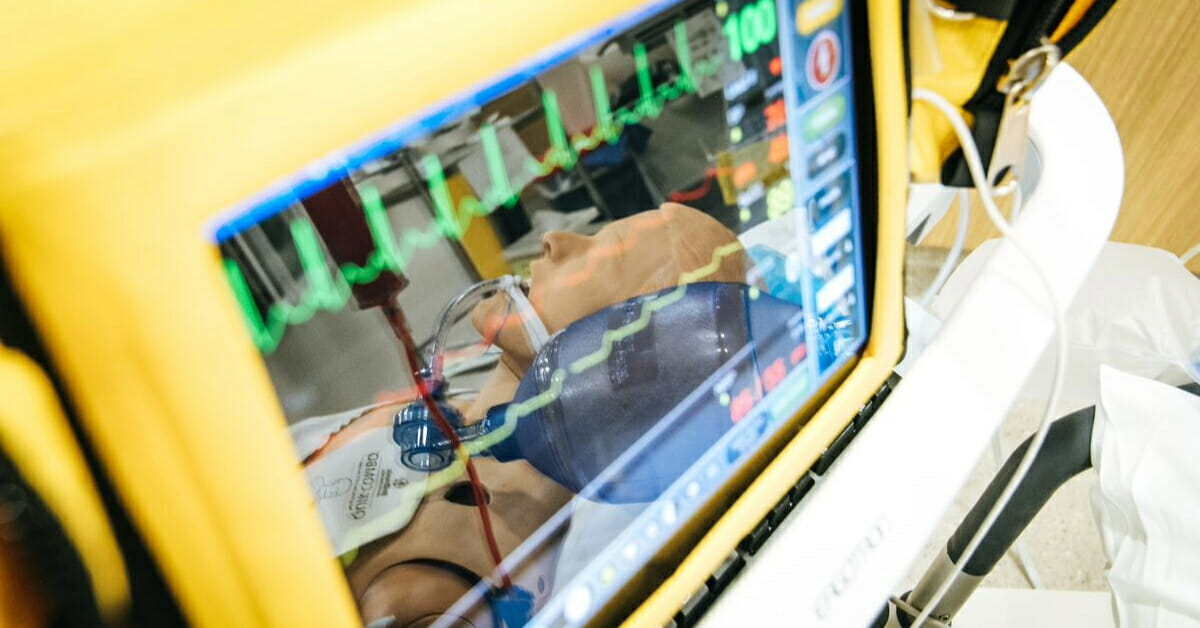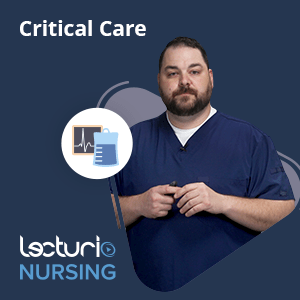What Is a CCRN Certification?
A nurse who holds a CCRN certification is considered to be board-certified in caring for critically ill patients.
This certification shows your expertise in caring for patients with complicated, life-threatening conditions. Nurses with a CCRN certification may work in several different areas of a hospital, including the intensive care unit (ICU), emergency department, and neonatal or pediatric units.
CCRN certifications are given through the American Association of Critical Care Nurses (AACN). The certification represents advanced knowledge and experience with caring for critically ill patients. CCRN certifications can be obtained by either Registered Nurses (RN) or Advanced Practice Registered Nurses (APRN) who hold an active license.
Take the Course: Critical Care Nursing
Cover all critical care essentials with Corey Hardin, RN, CCRN-CMC, and Prof. Rhonda Lawes
What Are the Benefits of a CCRN Certification?
You may be wondering if it is necessary to get a CCRN certification or if it is just extra letters on your name badge. There are definitely plenty of benefits to getting a CCRN certification. Any additional certifications you hold as a nurse make you a more desirable candidate for hiring teams and they help to further expand your knowledge and expertise as a nurse.
Potential benefits of a CCRN certification include:
- Providing high-quality, knowledge-based care for your patients
- Giving peace of mind to patient’s families
- Being a better support to your colleagues by holding knowledge and experience
- Showing patients and your employer that you are dedicated to your specialty
- Becoming a go-to, knowledgeable resource for coworkers have questions or need guidance
- Further validating your ability to make the best nursing decisions when caring for critically ill patients
- Potentially receiving incentives from your employer, such as salary increases and more leadership opportunities
- Enhancing your qualifications for graduate programs if you plan to pursue a higher education as a registered nurse
- Nurses with certifications report better job satisfaction
CCRN Certification Requirements: How Does It Work?
In order to get a CCRN certification, you will have to follow these steps:
- Hold an active and unencumbered RN or APRN license for practice in the United States.
- Meet the required amount of hours or years working in patient care with acutely ill or critically ill patients for a specific population (neonatal, pediatric, or adult) at a credible healthcare facility.
- Pay the exam fees and sign up for a test date.
- Pass the CCRN exam.
There are two different ways that you can go about getting the required hours needed to sit for the CCRN certification exam:
- Work as an RN or APRN for 1,750 hours providing direct patient care for acutely ill or critically ill patients within the last two years. At least 875 of these hours must be from the most recent year before applying.
- Work as an RN or APRN for at least 5 years with a minimum of 2,000 hours providing direct patient care for acutely or critically ill patients. At least 144 of these hours must be from the most recent year before applying for the certification.
CCRN Certification Cost: How Much Is It?
You will have to pay a fee in order to sit for the CCRN certification exam. According to the AACN website, it costs $250 for AACN Members to acquire a CCRN certification and $365 for non-members.
To become an AACN member, you will have to pay a membership fee of $78 annually. Being an AACN member reduces your exam cost and also gives you access to plenty of educational resources, including continuing education opportunities and critical care journals. Additionally, an AACN membership gives you access to a community of other critical care nurses which can help you network within your specialty and learn more about it.
How to Prepare for the CCRN Certification Exam
Being eligible to sit for the exam is one thing, but actually preparing for the exam is something else. Just as you studied for all of your exams in nursing school and the NCLEX, you’ll need to take some time to prepare for this exam as well. This is a big reason why many nurses don’t bother with getting certifications like the CCRN certification, since studying for another exam can seem like a major pain.
However, it is important to keep in mind that the benefits of certification often make the effort worthwhile. You’ll likely be glad that you took the steps to study and prepare for this exam, even if it required some of your valuable time and energy.
Through AACN, you can access a completely free exam handbook with a test plan, which may be all that you need to prepare. If you want to spend money on additional resources, there is also a CCRN adult review course that you can take for $199 for non-members and $159 for AACN members. AACN also offers an online practice exam for $30 for non-members and $25 for members.
How Many Questions Are on the Exam?
The CCRN exam includes 150 test questions. 125 of these questions are scored and 25 are used to gather data for future exams. The test questions are based on the AACN Synergy Model for Patient Care, with an 80% focus on clinical judgment and 20% focus on professional caring and ethical practice.
What to do If You Don’t Pass
If you do not pass the exam on your first try, you will be able to retake it for a discounted retest fee. You will be given a CCRN exam score report, which you can use to review the areas where you scored the lowest and study those subjects accordingly. You can sit for the CCRN exam up to four times in a 12-month period.
How Does Certification Renewal Work?
Once you receive your CCRN certification, it is valid for 3 years, after which you will have to renew it. In order to renew your certification, you’ll have to maintain your eligibility and still meet the same criteria that were required for you to obtain it in the first place. You will also have to meet a new clinical practice requirement of 432 hours in direct patient care of critically or acutely ill patients, with 144 of those hours being in the last 12 months.
You can either renew online through the Renewal by Synergy CERP program or you can take the CCRN exam again. Online renewal is generally recommended.
What About Other Nursing Certifications?
CCRN certification is one of the most common types of nursing certifications. However, there are plenty of other professional certifications that you can acquire as a nurse to help advance your career and further your education.
Some other common types of nursing certifications include:
- Certified Emergency Nurse (CEN)
- Progressive Care Nursing Certification (PCCN)
- HIV/AIDS Certified Registered Nurse (AACRN)
- Ambulatory Care Nurse (AMB-BC)
- Blood and Marrow Transplant Certified Nurse (BMTCN)
- Certified Pediatric Nurse (CPN)
- Medical-Surgical Nursing Certification (MEDSURG-BC)
- Oncology Certified Nurse (OCN)
These are only a few of the many professional certifications that are available for nurses.
Which Nursing Certifications are Most Beneficial?
The most beneficial nursing certifications will vary from person to person. If you plan to get a professional nursing certification, you should focus on those that are relevant to your current or desired field of work. Usually, you will need experience in a specific field in order to qualify for a certification. So if you want to work in a certain specialty, you should first focus on finding a job in that specialty. Then, once you’ve accumulated some experience, you can focus on getting certified.
Are Nursing Certifications Really Worth It?
Many nurses are skeptical about getting professional certifications since it costs them valuable time, energy, and money. It can be especially hard to get behind the idea of a professional certification when you already have plenty of experience in a given field. Many people agree that nursing certifications are worthwhile though, since they can reassure patients and families that they are being cared for by a highly-skilled nurse. Some studies have even found that nursing certifications are associated with a positive impact on patient care and patient outcomes.
Final Thoughts
Professional certifications are a great way to advance your nursing career and hone your skills. Although it’s true that real experience is gained through doing your job, by reviewing academic material and sitting for an exam, you can refresh some valuable information that pertains specifically to critical care nursing. Your patients and employers will likely be happy about your new certification and your new knowledge may even give you extra confidence.





